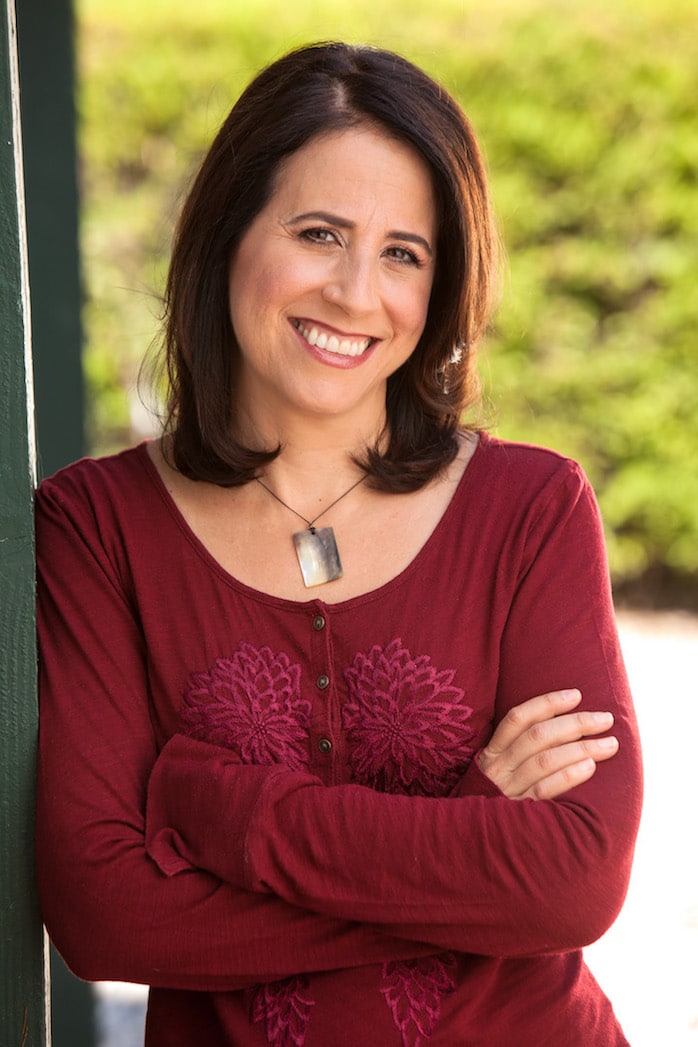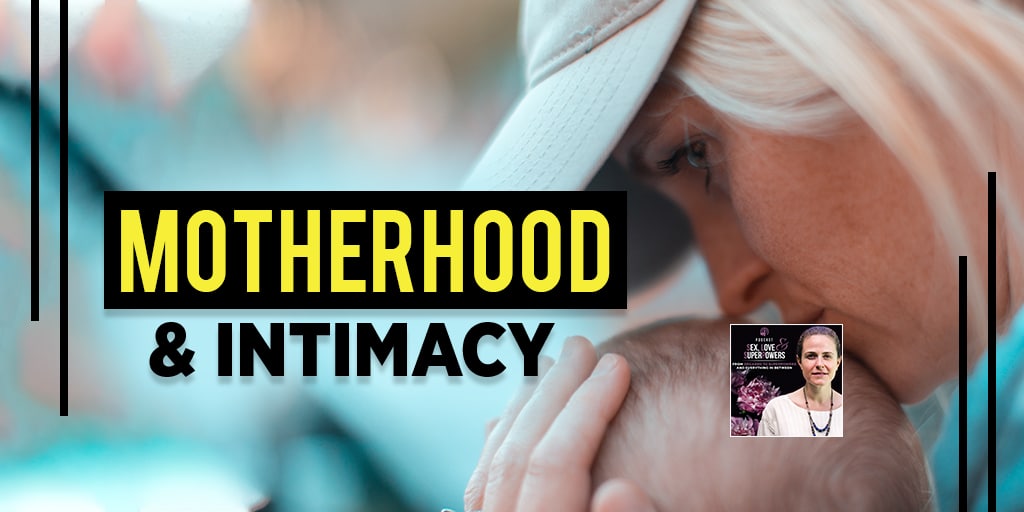
Hello everyone. Welcome to the Sex, Love and SuperPowers podcast show. I am your host, Tatiana Berindei. Today I have Karen Abrams with me. We are going to be discussing motherhood and intimacy.
Let me tell you a little bit about Karen before we get started. Karen Abrams is a UCLA educated master theta healer, relationship expert, and entrepreneur and gifted intuitive. She works with professional women to transform their subconscious beliefs and self-sabotaging behaviors to create new habits, mindsets and actions that bring about personal and financial fulfillment. Karen is dedicated to helping women break free from living in survival mode so they can bring about fulfilled, healthy and balanced lives. She’s known for integrating her energetic work with practical tools to bring about powerful results. Her work as a teacher, entrepreneur, and musician gives her the unique ability to understand the issues professionals and artists encounter. As a wife, mother, and daughter, she’s acutely aware of the pressures women faced in the sandwich generation. Navigating their romantic, parental, and child rearing relationships. She is well equipped for this conversation and I want to give her a warm welcome to the show today.
Well, thank you so much. I’m so honored to be here today. Have fun.
Yeah, very excited to have you. Before we dive into this, very close to my heart topic, right now. Will you please tell our listeners what your superpowers are?
Well I will if you promise not to tell.
Sorry, I can’t make that promise.
Oh no, I heard they’re good secret keepers. My superpower is to identify the root causes of your deepest issues and help you heal them. So you can live a more fulfilled life now. When we’re talking about motherhood and intimacy, obviously it’s something that’s close to both of our hearts. My work is going to heal the core issues that are preventing intimacy with your partner. So you can once again, enjoy that healthy, emotional and central connection with each other.
So let’s talk about this for a moment. From your understanding, what do you see as some of the most common root causes that prevent us once we become mothers, from really re-engaging fully in intimacy with our partners? Or falling out of that pattern with our partners?
Well that’s one of those … you know the joke where they say, “I just have a few things to say.” And the whole scroll rolls down to the ground.
Yeah, right.
I’ll just give you the top few. Exhaustion is a very big deal. When you have a child as you know, and when you’re going there. Essentially, there’s a few things that are going on. There’s exhaustion when you have a baby. Women’s body image changes. Their fundamental identities with their partner change from being lovers to being teammates and roommates. That space that they created for each other, that got them to the point of getting pregnant in the first place. Was like, “God, I love you so much and I know so much about you.” That space that you had for that, is now taken up with different conversations. Did the baby poop in her diaper? Who’s going to take so and so to the school? And I’ve got to go to the grocery store.
Everything goes from a sort of romantic place to a utilitarian place. For very, very good reason. Our love has to be strong enough to take that. Because all the research that’s been out in the last few decades says that when we have children, our relationship with our partner is the one that takes the hit. We’ve just got to be able to know that. For women, and I’m sure you felt this too, and I know I have. Which is a sadness then. We gained something else, but we lost something.
Absolutely.
We miss that connection and that warmth and that central connection that we had with our partner. That was just a part of our normal interactions with them.
For women, a lot of times, then they feel guilty. Like, if my partner’s a man, I can’t be there for my husband. I know this is the way, men love to connect this way with the woman that they love. Other women do, too. You feel like you’re not being able to do that and provide that. So that adds like another layer of guilt onto this.
Then whatever your partner’s doing to try to either compensate for that. Meaning, “I’m not going to mention it. She’s going through enough already and I don’t want to feel like I’m a burden on her.” Then maybe you’re feeling like, “God, if I have to give one more thing to another person, I think I’m going to flip out.” From just that … like you said, that exhaustion where you get to that line. My special time where I lost my personality was 8:00 PM. When I first had my baby-
I love how you frame that, when I lose my personality.
I just lost it. I would just say … and I have a female partner. I’m married and we’ve been together for 18 years. At that point I would say, “You know what? I’m done. Okay? I’m done. Just know that who you’re talking to is someone who’s already done.” She got it. She was able to support me through those times. But you’ve got to be able to also just be able to let go and let somebody take care of you.
Yeah. I want to go back to something that you said about the identity shift. Because I think that … at least I know for me in my experience of it. There wasn’t just … and this is especially like becoming a mom for the first time. I think subsequent children, you’re already in that identity of motherhood, so it’s not as big of a deal. But that transition from no babies to all of a sudden being a parent, is a really huge one.
I think in our culture, a lot of women are having babies later in life. They have established careers and identities in the world. They’re used to a certain level of freedom that comes with that. I know for myself, when I became a mom … Actually, I was 29 when my daughter was born. I wasn’t as old as some women are who are becoming first time mothers nowadays.
But even still, there was this huge thing that I had to navigate. And that I had to work through around like, “Holy shit, who am I now? How do I relate to the world?” Really kind of actually grieving the loss of this autonomous free person that I used to be. Who now all of a sudden has a dependent, who is very dependent. Then you throw a partner who wants to have sex with you in the mix. It’s like even more dependency. It was a lot, it was a lot.
It is a lot. One in four American marriages are sexless. It makes so much sense when you’re going through what you’re going through. With all of these new adjustments and all of these new identities. I think the funny thing about what you’re talking about, the autonomy was that you didn’t even realize how free you were.
Right. Oh my gosh. I look at people with no children now and I’m like, “You don’t even realize how much free time you have.” Like when someone who doesn’t have a kid tells me that they’re too busy for anything. I’m like, “You have no idea what busy means. Like you do not realize how much free time you have. You really don’t.”
Yeah. We’re all caught up in wherever we’re at. With our schedules and we fill it up to the brim, whether we’re single and no kids and no relationship, or in one. It all gets filled up by something. The list always seems to go down on the floor.
I feel like we have a lot to cover. I really want to talk about something you mentioned about body image. Because I think that’s a really big one for most moms. But we do need to take a quick break. We’re going to dive into that when we get back from the break. Before we go to break, will you tell our listeners where they can go to find out more about you and your work?
Sure. Well you can go to my website which is thinktheta.com. That’s a great place to be able to connect with me and find out what’s going on.
I am offering to your listeners a special for purchasing two 30 minute sessions from me. Normally I charge $250 but if they mentioned your shows, Sex, Love and SuperPowers. And they mentioned that to me, they can purchase it for $175. Which is a great investment if you’re working on saving your marriage?
But I also have a free gift for everybody else who wants to experience just who I am, what I have to offer. It’s an evening meditation called healthy intimacy. Which is an MP3 that is geared to create just a more loving and connected relationship with yourself and your partner. I will just give you one little tidbit of info on how to get the most out of that. It’s really brief, it’s like a six minute thing. If you listen to it before you go to bed, we already know that whatever’s in your brain, whatever you are exposed to right before you go to sleep. Marinates in your subconscious for the entire night. If you want that connectedness and that loving energy in your space for eight hours, that’s the best time to listen.
Beautiful, so we’ll make sure that the link is up on the site and available to all of you. Stay tuned, we’re going to take a quick break. When we get back, we’re going to dive even deeper. So don’t go anywhere.
To listen to the entire show click on the player above or go to the SuperPower Up! podcast on iTunes.
Music Credit: All instruments played by Amanda Turk. Engineered and produced by Tatiana Berindei and Daniel Plane reelcello.com
Podcast: Play in new window




